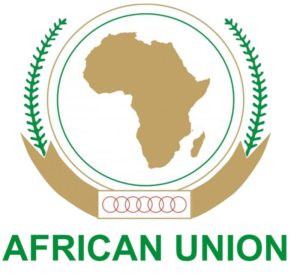 Addis Ababa – Abduction, torture, political murder. A dictator in power against the will of his people, human rights off the scale.
Addis Ababa – Abduction, torture, political murder. A dictator in power against the will of his people, human rights off the scale.
Zimbabwe, you say?
Could be until you hear the worst: slaves.
Not someone’s “garden boy” or maid who hasn’t been paid for months and lives in a shack without running water, but human beings owned, traded, beaten, and with no way to escape.
Welcome to Mauritania, host of next year’s African Union meeting.
In 2008, current leader Mohammed Aziz overthrew the elected government in a coup. Since then say human-rights groups, the situation has grown worse.
An implausible 82 per cent of voters returned him at the 2014 election, his most vocal opponents are either in jail or exile and on the annual Freedom House index, Mauritania ranks worse than Zimbabwe, in the same bracket as Sudan and Somalia.
The African Union has held its summit in dubious places — twice in Equatorial Guinea — but this time it’s Mr Aziz who could end up with a problem.
Journalists and rights groups are often denied visas or are turned back on arrival, and risk being deported if they try to interview slaves. The question is what will happen when the world’s media comes to town for the summit.
The ruling elite and landowners are mostly descended from Arabs who took over the region more than 600 years ago. The tens of thousands of slaves, and those who live in poverty or are marginalised come from black tribes who were displaced by the invaders.
In 1981, Mauritania was the last country on earth to ban slavery, and the practise is now a crime but prosecutions are rare. In smaller towns but also in the capital,Nouakchott, slave owners move with their human cargo in sight of the police.
The AU summit is not the only challenge. In April next year, the African Commission on Human and Peoples’ Rights or ACHPR will hold its 61st annual meeting in Nouakchott and the government will have to ponder visas for groups like Amnesty International and Human Rights Watch, both of whom have been strong on slavery and repression.
Denying them entry would bring even more focus to the regime.
The only curb on power has been the Mauritanian senate or upper house, but Mr Aziz abolished it earlier this year after a referendum that the opposition dismissed as “a farce”.
Now in his second and final term, opponents say the president wants to change the constitution so he can run again in 2019.
Some of the senators who spoke against him are in jail awaiting trial.
But Mr Aziz has been a loyal ally of the US and France in the war on terror, arresting radicals and allowing allied troops to operate across Mauritania. Not surprisingly, there has been little criticism of slavery or human rights.
In proportion to its population of just 4.3m, Mauritania has produced more Islamic fighters or “terrorists” than anywhere else in the region, among the highest in the world.
One voice likely to grow louder in the lead-up to both the ACHPR and AU meetings is that of Mohamed Bouamatou, reputed to be the country’s richest man, now forced into exile.
The state says he lives in Morocco to escape a law suit over tax, but given his criticism of the president, if he had stayed home Mr Bouamatou would likely find himself in a cell with the senators.
Even local journalists who dared interview him by phone have had a visit from the police.
“No African dictator, no leader suspected of crimes against humanity, must believe himself above the law or safe from justice,” Mr Bouamatou said recently. He funds opposition groups in Mauritania and a campaign for human rights across Africa.
His words might shake a number of despots, including Robert Mugabe, but Zimbabwe has been no stranger to criticism and Mugabe is barred from entering the US, Europe, Britain and Australia.
Until now, Mauritania’s importance to the war on terror has insulated Mohammed Aziz.
With Africa and the world coming to visit in 2018, both he and the slave-owning elite could be in for shock.
Post published in: Featured

